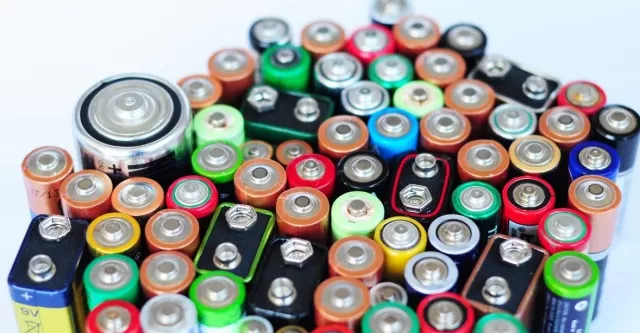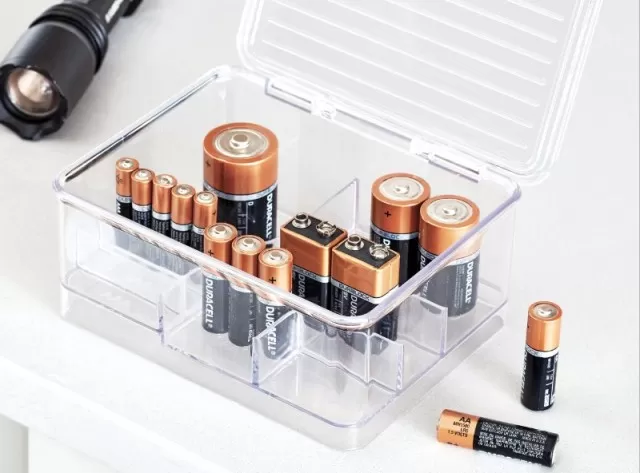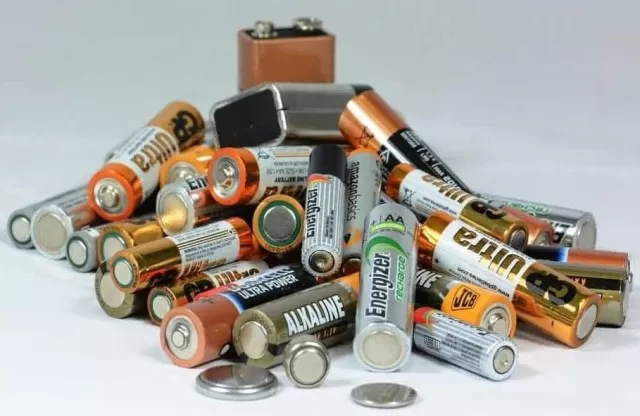Finding battery when we need them can be a frustrating challenge, especially when the ones we come across are often dead or nearly depleted.

This leads us to scavenge from devices like TV remotes, causing inconvenience and annoyance when our electronics fail to power on.
Thankfully, there are practical solutions to this disorganization dilemma.
By implementing efficient battery storage methods, we can keep track of working batteries while discarding the ones that no longer serve their purpose. To help you tackle this issue, we’ve compiled a list of the best battery storage ideas, allowing you to easily organize and access batteries in your home.
With these strategies, you can bid farewell to the frustration of searching for functional batteries when you need them most.
Way to Store Battery in Your House

Where Should You Store Batteries?
Before diving into the organization process, it’s essential to be aware of some safety guidelines regarding the storage of batteries.
According to Energizer, the best place to store batteries is in a cool, dry area at normal room temperature. It’s crucial to avoid any locations in your home that are even slightly damp, hot, or humid.
While there is a common misconception that refrigerating batteries can prolong their lifespan, Energizer clarifies that it’s not necessary to do so.
Additionally, it’s important to keep batteries out of reach of children and pets, especially small batteries that can be easily swallowed.
When considering storage options, remember to prioritize the safety of your household members.
The Importance of Battery-Specific Organizers.
Using an organizer designed specifically for batteries is the safest and most effective way to store them.
Fortunately, with the growing trend of home organization, there is a wide range of battery organizers available in the market.
Some organizers are larger and even include a battery tester, which can be beneficial if you have a large number of batteries.
If your battery collection is smaller, you can opt for a smaller and visually appealing organizer. Most battery organizers come with labeled compartments, making it easy to place your AA, AAA, D, and 9-volt batteries in the appropriate slots.
Individual slots provide better protection for batteries, preventing them from rubbing against each other.
According to Panasonic, if loose batteries come into contact with each other or their terminals touch other metal objects, it can cause a short circuit. Simply tossing batteries into a plastic bag or arranging them neatly in a junk drawer may not be the best approach.
Minimizing the chance of contact between batteries ensures their safety.
Aside from safety considerations, using a battery-specific organizer helps prevent batteries from being scattered throughout the house.
By designating a specific spot for the battery organizer in the kitchen, Living Room, or linen closet (avoiding high-humidity areas like bathrooms), you can avoid having batteries cluttering up various corners of your home. Additionally, it becomes easy to identify when it’s time to replace batteries by simply noticing the empty slots in the organizer.

Consider Keeping Them in Original Packaging.
While the urge to make every area of your home resemble the perfectly organized spaces you see on The Home Edit may be tempting, it’s best to skip the decanting trend when it comes to batteries.
Decanting involves removing items from their original packaging and transferring them to different containers for aesthetic purposes and ease of access.
However, storing batteries closely together without a protective barrier can pose safety risks.
Unless you use a specific organizer that allows adequate space between batteries, experts recommend leaving them in their original packaging. Alternatively, you can create a professional organizing effect by lining up the individual battery packages using dividers in a drawer.
Safe Disposal of Batteries.
Once a battery, whether rechargeable or not, has reached the end of its life, it’s crucial to dispose of it properly through recycling.
The recycling process may vary depending on your location, so it’s important to check the regulations in your municipality or state. Energizer suggests visiting Earth911 or Call2Recycle® for more information on how and where to dispose of batteries responsibly.
These resources can provide specific guidelines based on your area.
*The information is for reference only.